Berber-Libyan tea is a true specialty. Heated over the coals of an open fire in the sands of the Sahara, Libyan tea is dark and rich, often served with nuts floating in the steaming hot tea. Berbers — the native ethnic group of Libya and the Maghreb, or northwest Africa, region — make their home in Libya’s mountains and desert. Today the Berber, or Amazigh people, account for just 5 percent of Libya’s population, but their traditions live on.
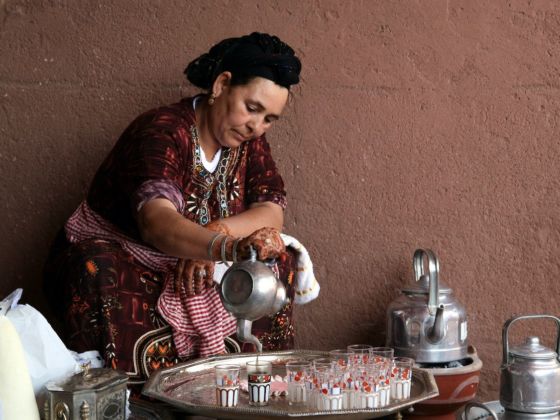
The making and drinking of tea in Berber-Libyan culture is just as much about spending time with family and loved ones as it is about enjoying a snack. Tea drinking in Libya is all about slowing down and catching up with friends in conversation. If you’re lucky enough to partake in this timeless tradition in any part of the world, you will come away with a greater appreciation for tea ceremonies and how they draw people closer to one another. As they say in Libya — “sahteen!” — to your health!
Although this tea is probably best prepared by a local Berber family, you don’t have to journey to another continent to experience Berber tea. Here’s how to recreate this special tea of the Sahara, and be transported with every sip.
Make an open fire
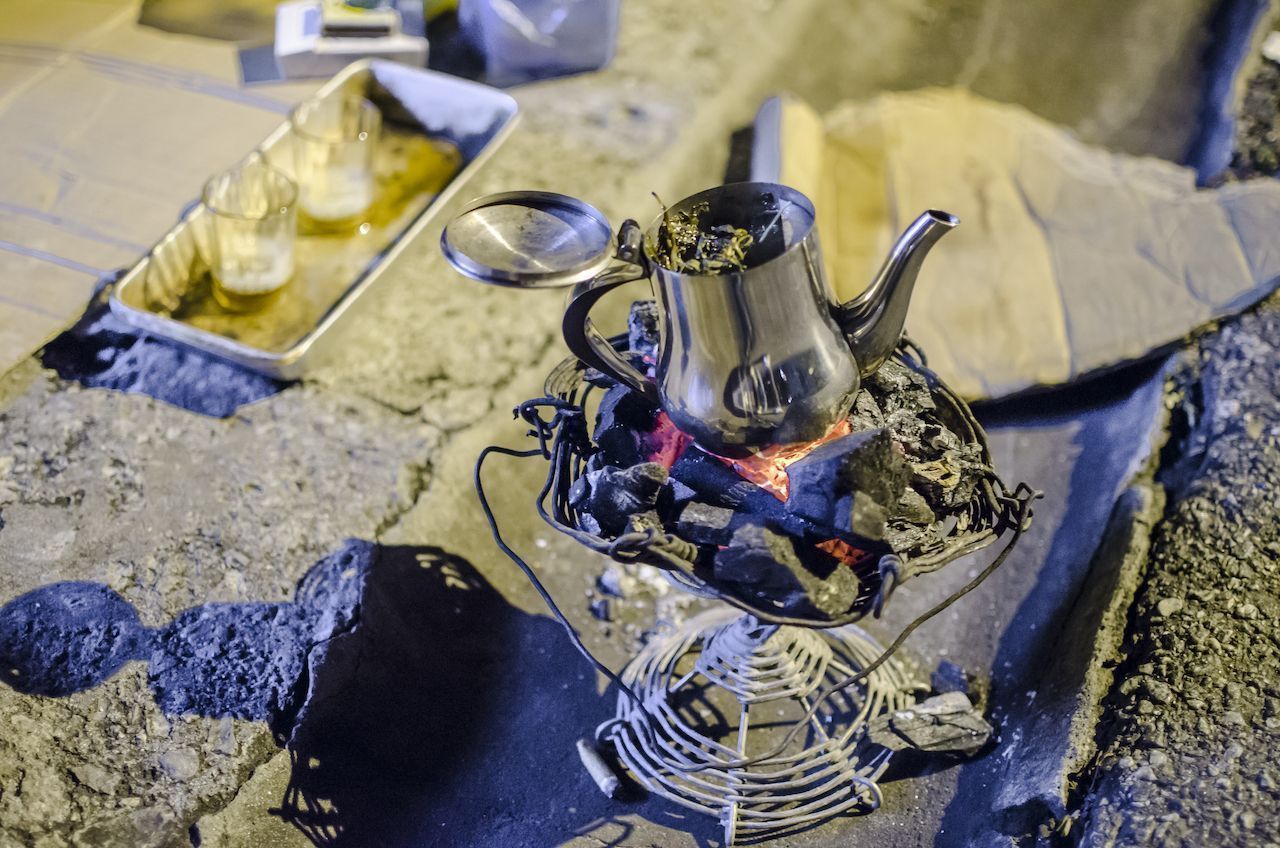
Photo: cribe/Shutterstock
Preparing your tea outside is the best way to capture the essence of Berber culture. Whether by the shores of the Mediterranean or in the heights of the Nafusa Mountains, this black (or sometimes called “red” tea), is best enjoyed under the open sky. The water for a proper Berber tea is heated over the logs that have turned to coals.
Of course, many Libyan families also make their tea with the conveniences of current technology and achieve happy results, so don’t be ashamed to use your stove if you can’t make a fire.
Time for the tea leaves
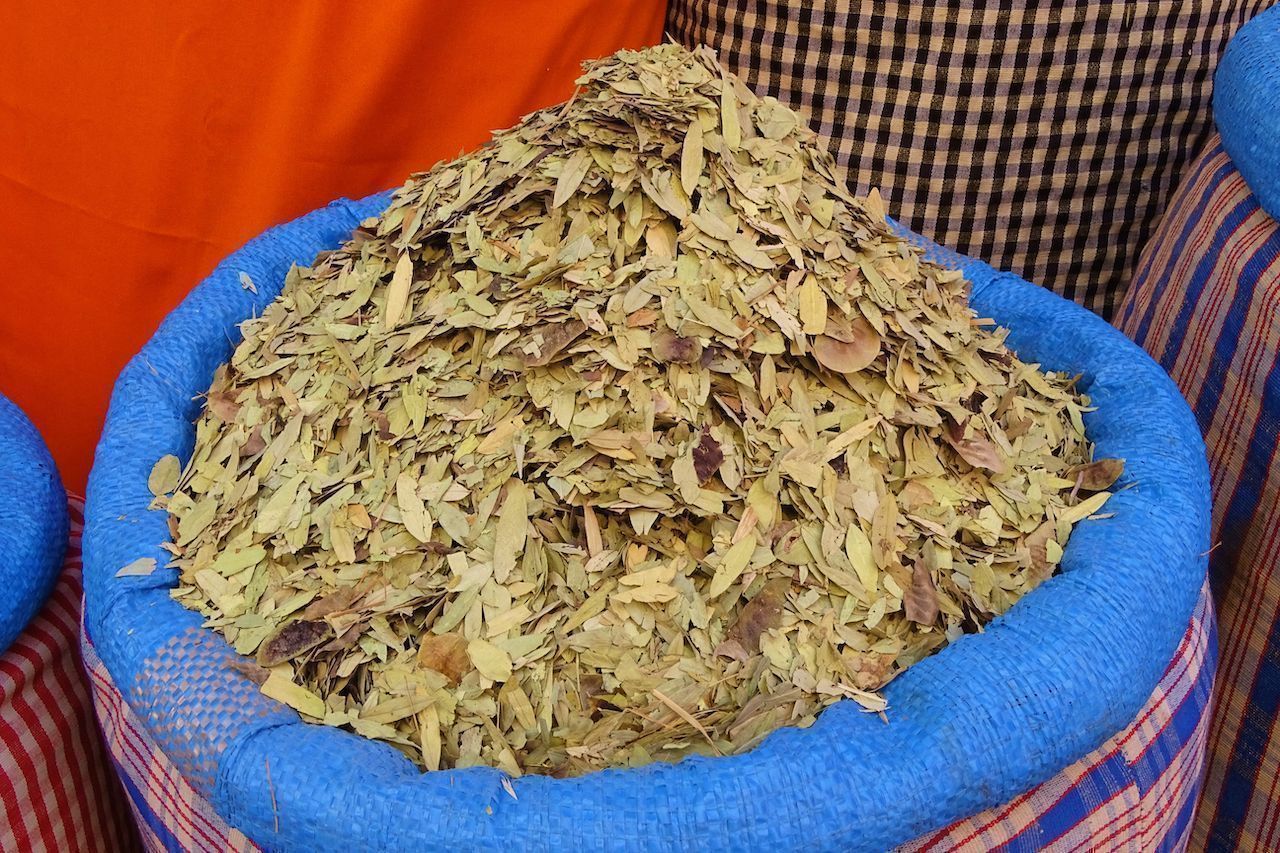
Photo: Marta navarroP/Shutterstock
Once your water is hot, throw a generous handful of loose green or black tea leaves into the pot. In Morocco, the most popular variety to drink in a traditional Berber tea ceremony is Chinese gunpowder green tea. To make the Libyan version, however, any fresh, full, unpackaged loose-leaf green or black tea will be suitable. If the only thing available to you is black tea bags from the grocery store, those will suffice. Be sure to add at least three or four tea bags to the water, as packaged tea is generally weaker in strength. Bringing to a boil again, let the tea simmer for about 20 minutes. It will transform into a dark, thick, pungent tea.
Prepare foam for the tea
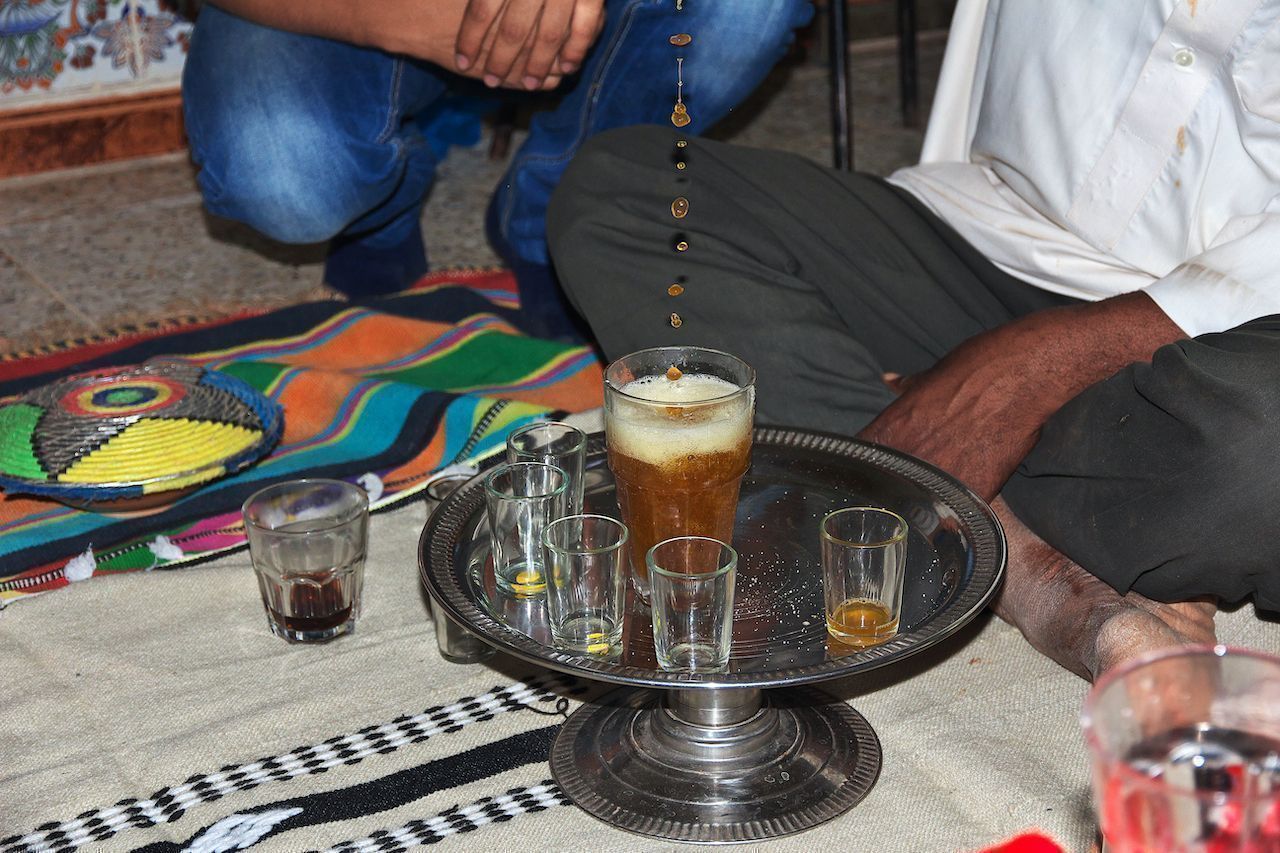
Photo: Sergey-73/Shutterstock
Tea foam, or reghwa, is the signature Berber twist on black tea. Much like a frothy cappuccino, the tea is served with a thick foam on the top inch or so of the tea. The foam is created by passing the tea from one cup to another, often holding the teacups far apart to create a greater chance for foam. By passing the tea from cup to cup about 20 to 30 times, the foam is formed. A skilled tea-frother will be able to pass the tea from over their head to a lowered cup below without spilling.
Add the peanuts or mint
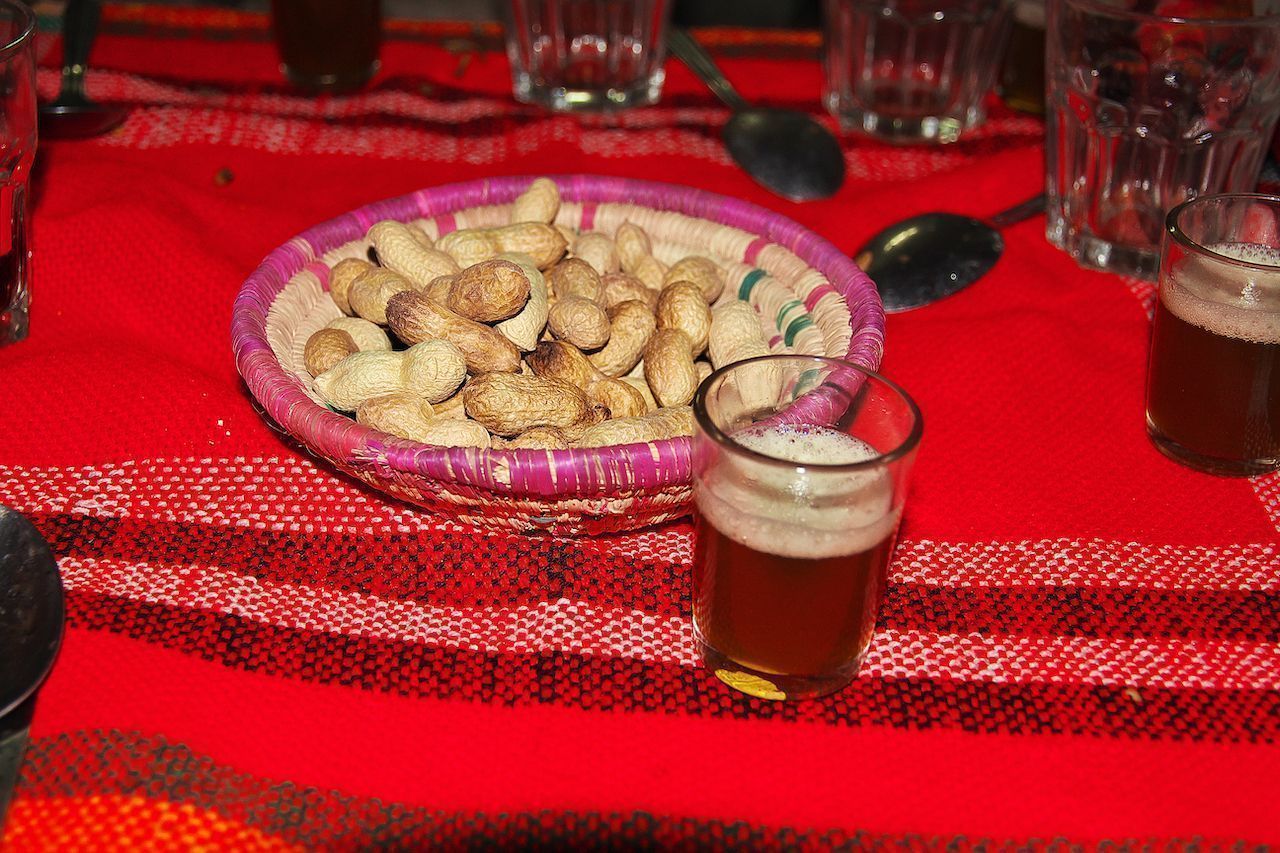
Photo: Sergey-73/Shutterstock
Libyans love to soak nuts in their tea. The nuts can be salted or unsalted but usually a generous handful is added to each glass teacup. Peanuts are standard, and almonds reserved for when you’re feeling fancy, or want to show an honored guest your appreciation. Fresh mint or basil can also be added at this point. This round is also sometimes served with a traditional ring-shaped cookie, kaak malih.
Serve and enjoy in good company
Berber tea should always be enjoyed in the company of family or friends. Preparing tea signifies that it’s time to gather with friends and family, so you shouldn’t be in a rush to finish. Take your time and luxuriate in the experience; that’s what it is all about.
Berber tea is usually served in three rounds, in small, glass teacups that are quite hot to the touch, and should be approached with caution. Tea time in Libya is synonymous with hanging out; these sessions can last for 30 minutes up to three hours. Everything is discussed, from politics to family decisions, the birth of a new child to the upcoming marriage — tea time is time to go deep in conversation. The passing of time is punctuated not by a clock, but instead by the serving of the next round of tea.